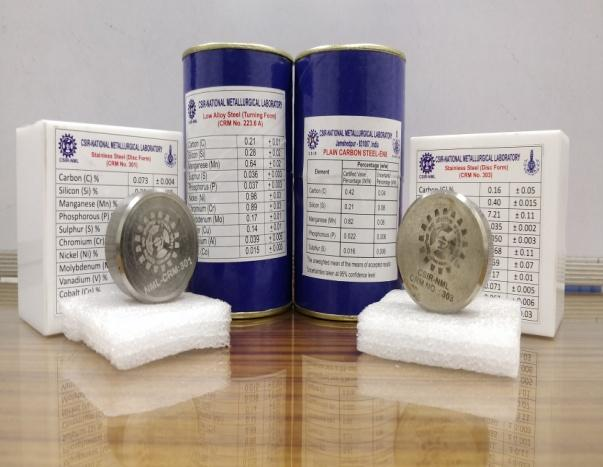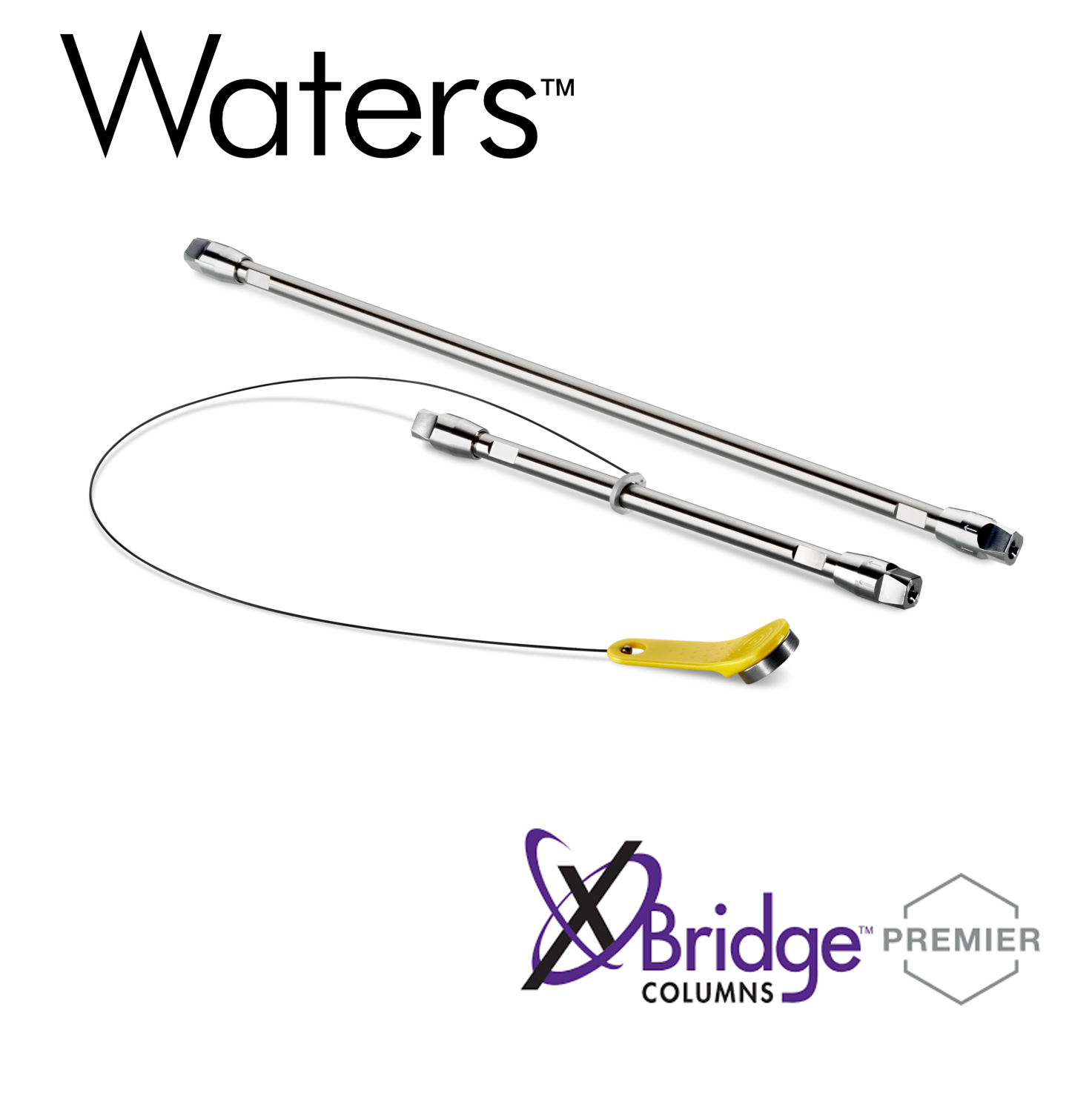Understanding certified reference materials (CRMs)

The Foundation of Accurate Scientific Analysis: Understanding Certified Reference Materials (CRMs)

In the realm of scientific research and analysis, accuracy is paramount. Every experiment, every measurement, and every conclusion hinges on the reliability of the data obtained. This is where the concept of **Chemical Standards & CRMs** takes center stage, playing a crucial role in ensuring the validity and trustworthiness of scientific findings. Certified Reference Materials (CRMs), meticulously prepared and characterized materials with known and certified properties, serve as the gold standard for calibrating instruments, validating analytical methods, and establishing a common reference point for comparisons across different laboratories and studies.
Imagine a scenario where a laboratory is tasked with analyzing the concentration of a specific chemical in a sample. To ensure the accuracy of their results, they need a reliable reference point – a material with a known and certified concentration of that chemical. This is where CRMs come into play. By comparing the sample's results against the CRM, the laboratory can confidently assess the accuracy of their analysis and ensure that their findings are reliable and reproducible.
The importance of CRMs extends far beyond individual laboratories. In a globalized scientific community, where research collaborations and data sharing are commonplace, CRMs provide a universal language for scientific communication. They enable scientists from different institutions and countries to compare their results with confidence, knowing that they are all referencing the same standard. This interoperability is essential for advancing scientific knowledge and fostering innovation.
However, the significance of CRMs goes beyond simply ensuring accuracy. They also play a vital role in driving progress in various scientific fields. For instance, in environmental monitoring, CRMs are used to establish baseline levels of pollutants and track changes over time. In clinical diagnostics, CRMs are essential for calibrating instruments and ensuring the accuracy of patient diagnoses. In food safety, CRMs are used to monitor the presence of contaminants and ensure the quality of our food supply.
The impact of CRMs on scientific advancement is undeniable. They provide the foundation for accurate and reliable data, enabling scientists to make informed decisions, develop new technologies, and address critical challenges facing our world. As we delve deeper into the world of CRMs, we will explore their diverse applications, the rigorous processes involved in their production and certification, and the critical role they play in ensuring the integrity and reliability of scientific research.
The Crucial Role of Certified Reference Materials (CRMs) in Ensuring Accurate and Reliable Laboratory Results
In the realm of scientific research, analytical testing, and quality control, achieving accurate and reliable results is paramount. Laboratories across various industries, from pharmaceuticals and environmental monitoring to food safety and materials science, rely heavily on analytical techniques to generate data that informs critical decisions. However, the accuracy and reliability of these results hinge on the quality of the materials used in the analysis. This is where certified reference materials (CRMs) play a pivotal role.
CRMs are highly characterized materials with precisely known properties, serving as benchmarks for calibrating instruments, validating analytical methods, and assessing the accuracy of measurements. They act as the gold standard in analytical chemistry, providing a traceable and reliable reference point for ensuring the integrity of laboratory data.
The importance of CRMs extends beyond individual laboratories. They are essential for establishing international comparability of analytical results, fostering scientific collaboration, and promoting global harmonization of measurement standards. In essence, CRMs serve as the cornerstone of a robust and reliable analytical ecosystem, underpinning the accuracy and trustworthiness of scientific findings.
The Need for Traceability and Accuracy in Analytical Measurements
The pursuit of accurate and reliable analytical measurements is driven by the need for scientific rigor and the implications of inaccurate data. Inaccurate results can lead to flawed conclusions, compromised decision-making, and potentially detrimental consequences. For instance, in pharmaceutical analysis, inaccurate measurements of drug potency could result in ineffective treatments or even adverse reactions. In environmental monitoring, inaccurate measurements of pollutants could lead to misinterpretations of environmental risks and ineffective pollution control measures.
To mitigate these risks, laboratories must ensure the traceability and accuracy of their analytical measurements. Traceability refers to the ability to link a measurement result to a known reference point, typically a national or international standard. This chain of traceability ensures that measurements are consistent and comparable across different laboratories and over time. Accuracy, on the other hand, refers to the closeness of a measurement result to the true value of the analyte being measured.
CRMs play a crucial role in achieving both traceability and accuracy. They provide a traceable reference point for calibrating instruments and validating analytical methods, ensuring that measurements are consistent and comparable. By using CRMs, laboratories can establish a clear chain of traceability, linking their measurements to internationally recognized standards.
The Role of CRMs in Calibrating Instruments and Validating Analytical Methods
Analytical instruments, such as spectrophotometers, chromatographs, and mass spectrometers, are essential tools for measuring the properties of samples. However, these instruments are not perfect and require regular calibration to ensure their accuracy. Calibration involves adjusting the instrument's response to match a known reference point, typically a CRM. By using a CRM with a precisely known concentration or property, the instrument can be calibrated to provide accurate measurements for unknown samples.
In addition to instrument calibration, CRMs are also essential for validating analytical methods. Analytical methods are the procedures used to measure the properties of samples. Validating a method involves demonstrating that it is accurate, precise, and reliable. CRMs play a crucial role in method validation by providing a known reference point for assessing the method's accuracy and precision. By analyzing a CRM using the validated method, laboratories can determine the method's ability to produce accurate and reliable results.
The Importance of CRM Certification and Characterization
Not all reference materials are created equal. To be considered a CRM, a material must undergo rigorous certification and characterization processes. Certification involves a thorough assessment of the material's properties, including its purity, homogeneity, stability, and traceability. This process is typically conducted by accredited organizations, such as national metrology institutes or independent certification bodies.
Characterization involves determining the precise values of the material's properties. This process involves using highly accurate and validated analytical methods to measure the material's properties, such as concentration, composition, or physical properties. The results of the characterization process are documented in a certificate of analysis, which provides detailed information about the CRM's properties and traceability.
The certification and characterization of CRMs are essential for ensuring their quality and reliability. By using certified CRMs, laboratories can be confident that they are using materials with known and traceable properties, which is crucial for achieving accurate and reliable analytical results.
Types of Certified Reference Materials (CRMs)
CRMs are available for a wide range of analytes and matrices, catering to the diverse needs of laboratories across various industries. Some common types of CRMs include:
- Chemical Standards: These CRMs are used for calibrating instruments and validating analytical methods for chemical analysis. They are available for a wide range of chemical compounds, including organic and inorganic compounds, metals, and pesticides.
- Environmental Standards: These CRMs are specifically designed for environmental monitoring and analysis. They are used to calibrate instruments and validate methods for measuring pollutants in air, water, and soil.
- Food Standards: These CRMs are used for analyzing food products and ensuring their safety and quality. They are available for a wide range of food contaminants, such as pesticides, mycotoxins, and heavy metals.
- Pharmaceutical Standards: These CRMs are used for analyzing pharmaceutical products and ensuring their potency, purity, and stability. They are available for a wide range of active pharmaceutical ingredients and excipients.
- Materials Standards: These CRMs are used for analyzing materials, such as metals, polymers, and ceramics. They are used to calibrate instruments and validate methods for measuring the properties of these materials.
Selecting the Right CRM for Your Needs
Choosing the right CRM for your specific application is crucial for achieving accurate and reliable results. Several factors should be considered when selecting a CRM, including:
- Analyte: The CRM should contain the analyte of interest at a concentration relevant to your application.
- Matrix: The CRM should have a matrix similar to the samples you will be analyzing. For example, if you are analyzing environmental samples, you should use a CRM with a similar matrix, such as soil or water.
- Concentration: The CRM should have a concentration range that is appropriate for your analytical method and the expected concentration of the analyte in your samples.
- Stability: The CRM should be stable over time and under the storage conditions you will be using.
- Traceability: The CRM should be traceable to a national or international standard.
- Certification: The CRM should be certified by a reputable organization, such as a national metrology institute or an independent certification body.
Benefits of Using Certified Reference Materials (CRMs)
Using CRMs in your laboratory offers numerous benefits, including:
- Improved Accuracy and Reliability: CRMs provide a traceable and reliable reference point for calibrating instruments and validating analytical methods, leading to more accurate and reliable results.
- Enhanced Traceability: CRMs establish a clear chain of traceability, linking your measurements to internationally recognized standards, ensuring consistency and comparability across different laboratories and over time.
- Reduced Measurement Uncertainty: By using CRMs, laboratories can reduce the uncertainty associated with their measurements, leading to more precise and reliable results.
- Improved Method Validation: CRMs are essential for validating analytical methods, ensuring that the methods are accurate, precise, and reliable.
- Increased Confidence in Results: Using CRMs provides laboratories with increased confidence in their results, knowing that they are using materials with known and traceable properties.
- Compliance with Regulations: Many regulatory bodies require the use of CRMs for specific applications, such as environmental monitoring, food safety, and pharmaceutical analysis.
- Improved Data Quality: CRMs contribute to improved data quality, leading to more informed decision-making and better scientific outcomes.
Conclusion
Certified reference materials (CRMs) are indispensable tools for ensuring the accuracy and reliability of laboratory results. They provide a traceable and reliable reference point for calibrating instruments, validating analytical methods, and assessing the accuracy of measurements. By using CRMs, laboratories can achieve improved accuracy, enhanced traceability, reduced measurement uncertainty, and increased confidence in their results. The use of CRMs is essential for maintaining scientific rigor, promoting international comparability, and ensuring the trustworthiness of scientific findings.
Products You may Like
Check out other IT- Tech product that suit your taste

Pesticides standards
Comprehensive selection of high-quality Pesticides Certified Reference Materials for accurate and reliable laboratory testing.

Per- and polyfluoroalkyl substances (PFAS)
PFAS chemical standards for monitoring pollutants in water, burn sites, and non-stick products.

Custom standards
Custom Certified Reference Materials (CRM) standards tailored for your unique laboratory needs. Trusted quality for over 35 years.
Subscribe to our newsletter
Stay updated with IT-Tech Insights
Related posts
Check out other IT- Tech Scientific Resources

Common challenges in chromatography
Retention problems are a common challenge in chromatography, particularly when working with compounds that are not retentive on traditional reverse-phase (RP) columns.

Selecting CRMs for your analytical method
Selecting the right CRMs (Certified Reference Materials) is a critical step in establishing a robust analytical method. This article provides insights into key factors to consider when choosing CRMs, including purity, traceability, and suitability for your specific application. Understanding the role of CRMs in quality control and method validation is essential for achieving accurate and reliable results. We discuss the importance of selecting CRMs from reputable suppliers who adhere to strict quality standards and provide comprehensive documentation. By carefully considering these factors, you can ensure that your chosen CRMs meet your specific needs and contribute to the overall success of your analytical workflow.

Multi-component standard mixes vs single standards
When conducting research, accurate calibration and validation are crucial. This often involves using chemical standards or certified reference materials (CRMs). Two common approaches are multi-component standard mixes and single standards. Multi-component mixes offer convenience and cost-effectiveness, while single standards provide greater flexibility and control. This article delves into the advantages and disadvantages of each approach, helping you determine the best option for your specific research needs. We discuss factors such as accuracy, traceability, and cost, providing insights to ensure reliable and accurate results in your experiments.










































































